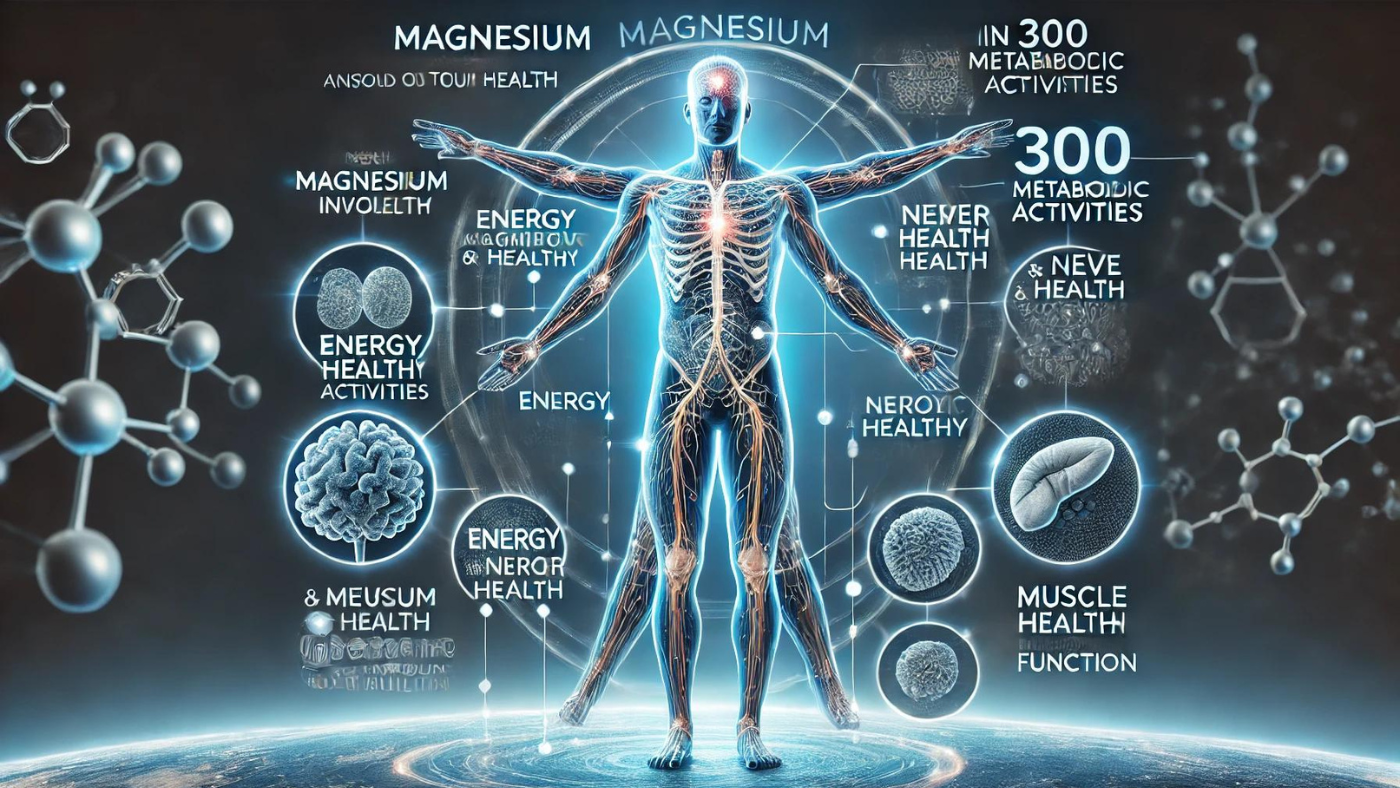How Many Neutrons Does Magnesium Have? Simple Answer Inside

Magnesium is essential for your health, but when it comes to the science behind this powerful mineral, most people need to learn the details.
Ever wondered, “How many neutrons does magnesium have?” Let’s dive into the world of atomic structure and break it down simply and digestibly.
By the end of this article, you’ll understand how many neutrons magnesium has and why it’s essential for your health and well-being.
How Many Neutrons Does Magnesium Have?
Magnesium, a vital mineral for your body, holds a fascinating atomic secret (1).
In its most common form, magnesium-24, it has 12 neutrons. But why does this matter to you?
Understanding magnesium at a deeper level sheds light on the importance of its role in nature and highlights its value in your health.
Quick Breakdown:
- Atomic Number: 12 (protons = 12, electrons = 12)
- Most Common Isotope: Magnesium-24
- Neutron Count: 12 (Mass number 24 - Atomic number 12 = Neutrons)
It’s not just numbers—it’s nature’s blueprint.
Magnesium’s unique structure makes it a key element in your daily nutrition.
Understanding Magnesium's Atomic Structure
Atoms are like tiny building blocks, and understanding magnesium’s atomic structure is essential to understanding why this mineral is so vital for health.
What is Magnesium’s Atomic Number?
Magnesium has an atomic number of 12.
This means it has 12 protons and, in a neutral state, 12 electrons.
The atomic number defines an element, making magnesium…well, magnesium.
No matter where it’s found, every atom of magnesium has these 12 protons, making it an integral part of nature’s design.
How Many Neutrons are in Magnesium-24?
Magnesium-24, the most common isotope of magnesium, has 12 neutrons.
This isotope accounts for about 79% of the magnesium in nature.
It’s a stable form that works harmoniously in your body, helping to regulate various biological functions like nerve transmission and muscle contraction (2).

How to Find the Neutrons in Magnesium and Other Elements
Finding the number of neutrons in any element is simpler than you might think.
It’s a straightforward formula that anyone can apply. Here's how you do it for magnesium—and any other element you may encounter.
Neutron Calculation in Magnesium
To calculate neutrons, use this formula:
For magnesium-24:
- Mass number: 24
-
Atomic number: 12
So, 24 - 12 = 12 neutrons.
Why Knowing Neutrons is Important for Understanding Elements
Understanding the neutron count helps you appreciate how each element behaves.
In magnesium’s case, it’s why it plays such a crucial role in your body's biochemistry.
At Wild Foods, we believe that knowledge of these tiny particles empowers you to make more informed decisions about your health, especially when supplementing with natural products like Wild Magnesium Complex.
Magnesium's Role in Nature and Health
Magnesium isn’t just a scientific curiosity.
Its importance extends far beyond the lab.
This mineral is essential for human health and all living things, including plants and animals.
The Connection Between Magnesium and Human Health
Magnesium is a component of over 300 metabolic activities in your body (3).
It is a workhorse that maintains nerve activity and controls muscle contractions.
It functions as your body's silent hero, silently making sure that everything goes as planned.
We support Wild Foods' commitment to finding and providing you with nature's most potent components by embracing magnesium in its natural form.
Why Magnesium Matters in Your Diet
Magnesium deficiency is more common than you think (4).
A magnesium-rich diet supports healthy blood sugar levels, maintains muscle and nerve function, and helps produce energy (5).
That’s why adding magnesium-rich foods, or supplementing with a product like Wild Magnesium Complex, can support your daily wellness.
Final Thoughts
Magnesium’s neutron count might seem like a small detail, but as we’ve seen, it’s part of a bigger picture. It represents the balance and harmony found in nature.
Just like magnesium keeps atoms stable, it helps keep your body balanced.
This mineral is essential for health and wellness, from promoting muscle function to maintaining energy.
You are starting along the path to a better life by learning the science of magnesium.
Thus, why not incorporate magnesium into your wellness routine and reap its benefits?
We at Wild Foods are dedicated to providing you with the most potent natural ingredients to nourish your body.
Are you tired of feeling drained? Boost your energy with Magnesium! ⚡🌟
FAQs
How Many Electrons Does Magnesium Have?
In its neutral form, magnesium, which has an atomic number of 12, contains 12 electrons.
What is Magnesium’s Mass Number?
Magnesium’s most common isotope, magnesium-24, has a mass of 24.
How Many Neutrons Does Aluminum Have?
Aluminum has 14 neutrons. Like magnesium, aluminum’s neutron count is found by subtracting its atomic number (13) from its mass number (27).
How Many Valence Electrons Does Magnesium Have?
Magnesium has two valence electrons. These electrons facilitate chemical bonding, which allows magnesium to interact with other elements.
What is the Atomic Number of Magnesium?
With 12 protons in its nucleus, magnesium has an atomic number of 12.
Related Studies
1. Title: The Integral Role of Magnesium in Muscle Integrity and Aging
Magnesium's crucial biochemical roles, including its involvement in DNA repair and enzyme function, emphasizing its significance in cellular processes.
Link: https://www.mdpi.com/2072-6643/15/24/5127
2. Title: The Role of Magnesium in Neurological Disorders
Magnesium's essential role in nerve transmission and neuromuscular conduction, illustrating its importance for muscle contraction and overall neurological health.
Link: https://www.ncbi.nlm.nih.gov/pmc/articles/PMC6024559
3. Title: Magnesium and Muscle Function
Magnesium's role as a cofactor in over 300 enzymatic reactions, particularly emphasizing its importance in energy metabolism and protein synthesis.
Link: https://elitemyotherapy.com.au/magnesium-and-muscle-function/
4. Title: Effects of Magnesium Supplementation on Muscle Recovery
Magnesium's impact on muscle performance and recovery while also highlighting its role in glucose metabolism and insulin sensitivity.
Link: https://translational-medicine.biomedcentral.com/articles/10.1186/s12967-024-05434-x
5. Title: What is the role of magnesium for skeletal muscle cramps?
Cochrane review presents epidemiological evidence on the prevalence of magnesium deficiency and its significant health implications, particularly regarding cardiovascular and metabolic diseases.
Link: https://www.ncbi.nlm.nih.gov/pmc/articles/PMC8020016

